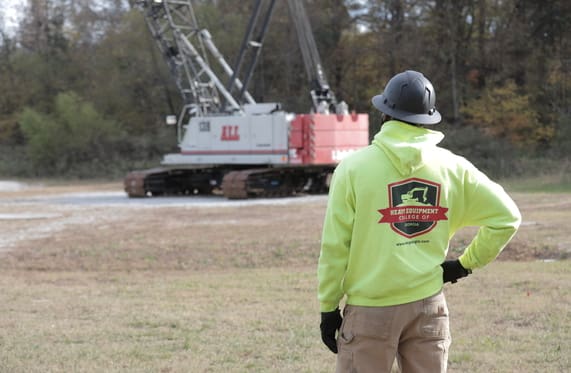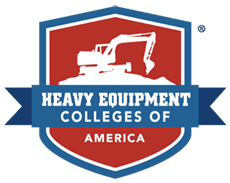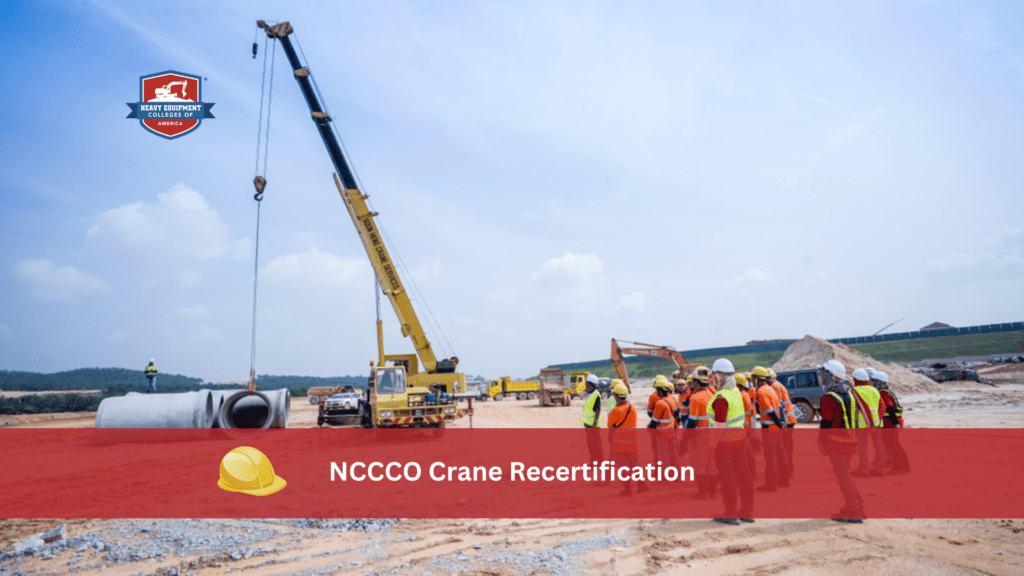NCCCO-certified techs meet strict crane operating standards, effectively portraying safety proficiency, competence, and commitment. There are many benefits to being NCCCO-certified, like increased job opportunities, high earning potential, improved workplace safety, and industry regulation compliance.
While an NCCCO (National Commission for the Certification of Crane Operators) certification is imperative to crane operation, there are many aspects to the process. From implications for crane operators and employers, eligibility criteria, examination requirements, and recertification, each different facet is crucial in ensuring safety and compliance in the workplace.
What are the NCCCO Recertification Requirements?
To maintain your mobile crane operator NCCCO certification, you must:
- Valid Certification: hold a current and valid NCCCO certification
- Earn Continuing Education Credits (CECs): obtain CECs by taking approved courses and workshops for safe crane operation
- Document CECs: keep a documented record of earned CECs to submit for recertification
- Submit Application: apply to a recertification program before your current valid certification and documents expire
- Pay Recertification Fee: pay the recertification fee issued by NCCCO

How to Recertify
To recertify:
- Earn CECs: enroll and attend accredited courses and workshops related to crane operation safety to get the required CECs
- Maintain Documentation: keep a detailed record of all the CECs submitted with your application
- Submit Application: apply for a recertification course before your current certification expires
Pay Fee: pay the NCCCO recertification course fee
When you fulfill all of these requirements, you must maintain your certification status, whether it be a mobile crane operator certificate or a tower crane operator certificate. This will demonstrate your dedication to safety protocols and professionalism in the workplace.
Is Recertification Required for Certification?
Yes, certification is mandatory to maintain your NCCCO certification for mobile crane operation. When getting recertified, you are proving that you are up-to-date on industry standards, best practices, and safety regulations (which is important to employers.)
To get recertified, operators need to earn accredited Continuing Education Credits (CECs) by taking courses and workshops related to crane operation safety. You also need to submit a complete recertification application that includes your earned CECs and pay for the recertification fee.
Other Commonly Asked Questions About NCCCO Recertification
- Are there any reference materials to help study for recertification?
The NCCCO’s Candidate Handbook and Study Guides are quality reference materials that will help you study for recertification. - When does my certification expire?
Certification expiration dates vary depending on the certificate you have received. You can find your expiration date on your certification card or in your NCCCO account. - If I do not pass my exams, am I allowed to test again?
If you don’t pass your certification exam, you can retest only after waiting a period of time determined by NCCCO. - I am running out of time to recertify. Can I ask for more time?
Extension requests for recertifications are only accepted on a case-by-case basis by NCCCO. - How do I add another certification?
You can add another certification by submitting an additional certification request through the NCCCO website. - How soon before my certification expires can I recertify?
You can recertify for certification one year before your certificate expires. - What exams do I take for recertification?
The exam you take to recertify will be dependent on the certification you hold and the requirements for each. - Do I have to take the practical exam at recertification?
Depending on the certification category requirements you’re trying to get recertified for, you may have to take a practical exam. - How many questions will be on the exam(s) I have to take?
The number of questions on your recertification exam will vary depending on which test category you are signed up for and the exam format.
Is NCCCO Certification Mandatory?
Though NCCCO certification is not universally mandated by law, obtaining the certificate is often impressive and required for employers and industry standards. Although certain jurisdictions and specific construction projects mandate crane operators to have NCCCO certification, it is not an all-encompassing regulatory requirement.
Nevertheless, many employers actually prefer to work with NCCCO-certified crane operators because of their rigorous training, testing, and ongoing recertification process. This not only ensures that they remain up to date with all the new machinery advancements, but it also proves that they adhere to safety standards.
An NCCCO certificate improves your likelihood of landing a high-paying job and gaining credibility within the crane operating industry, making it a valuable credential for operators wanting to have successful careers.
Certification Process Overview
Mobile crane operator’s NCCCO certification process is a structured pathway to gain competency and safety in operating a crane:
- Eligibility: students have to meet certain age, experience, and physical requirements
- Written Exams: test over crane principles, safety precautions/regulations, and load charts
- Practical Exams: effectively portray hands-on skills in operating a crane safely
- Certification Levels: given based on technicians passing different crane type tests and capability skill set
- Recertification: required to retest every five years to maintain credential level
- Continuing Education: operators are encouraged to remain up to date on changing industry standards and practices
NCCCO’s strict certification process ensures that crane operators are seen as credible and professional in working environments, Obtaining a NCCCO certificate shows a commitment to safety and quality work, improving your career opportunities in the industry.
How to Become NCCCO-certified
- Learn About Certifications
There are many different certifications offered by the National Commission for the Certification of Crane Operators (NCCCO). It’s important to determine which certification would be appropriate for your career: Mobile Crane Operator, Tower Crane Operator, and Rigger. - Review the Eligibility Requirements
Before pursuing a certification, you must meet the eligibility requirements, which could include age, experience, and physical abilities. These requirements vary based on the certification you are applying for. - Prepare for Your Exams
Prepping for the written and practical NCCCO exams includes studying the exam content outlines. Researching and analyzing these study materials, practice exams, and training courses improves your skills and knowledge.
- Apply for and Schedule Your Written Exam
To apply for the NCCCO exam, you need to complete an application and submit it via their website or mail. Upon receiving approval, you can schedule an exam at an authorized testing center near you. - Find a Test Site and Schedule Your Practical Exam
Not all testing sites offer the same certification tests. To schedule your practical exam, ensure that you locate a site that offers the testing you need. Once you feel comfortable and prepared, schedule your hands-on skills exam appointment. - CCO Certification Cards
Once you complete and pass both the written and practical exams, you will get a CCO certification card for the certification you earned. Make sure you keep this card in a safe place. It will serve as proof of your certification for employers and must be renewed periodically through recertification exams.
Become a NCCCO Certified Crane Operator at Heavy Equipment Colleges of America
Heavy Equipment College streamlines your journey of becoming a NCCCO certified crane operator. Our comprehensive training programs include hands-on experience and expert technician instruction so that you are prepared for success in your chosen industry. When you earn your certification through us, you gain the skills, knowledge, and credentials necessary to safely operate a crane.
Join us at Heavy Equipment College and let us help you build a successful future in the heavy equipment industry.

